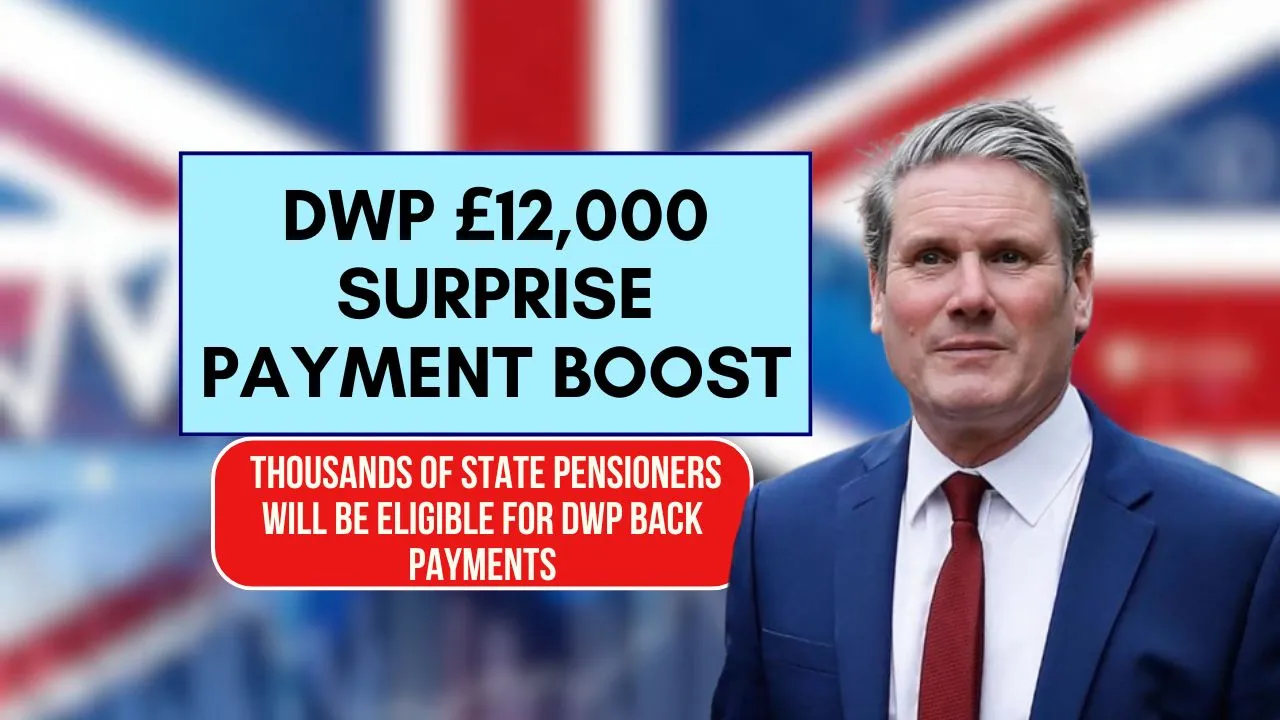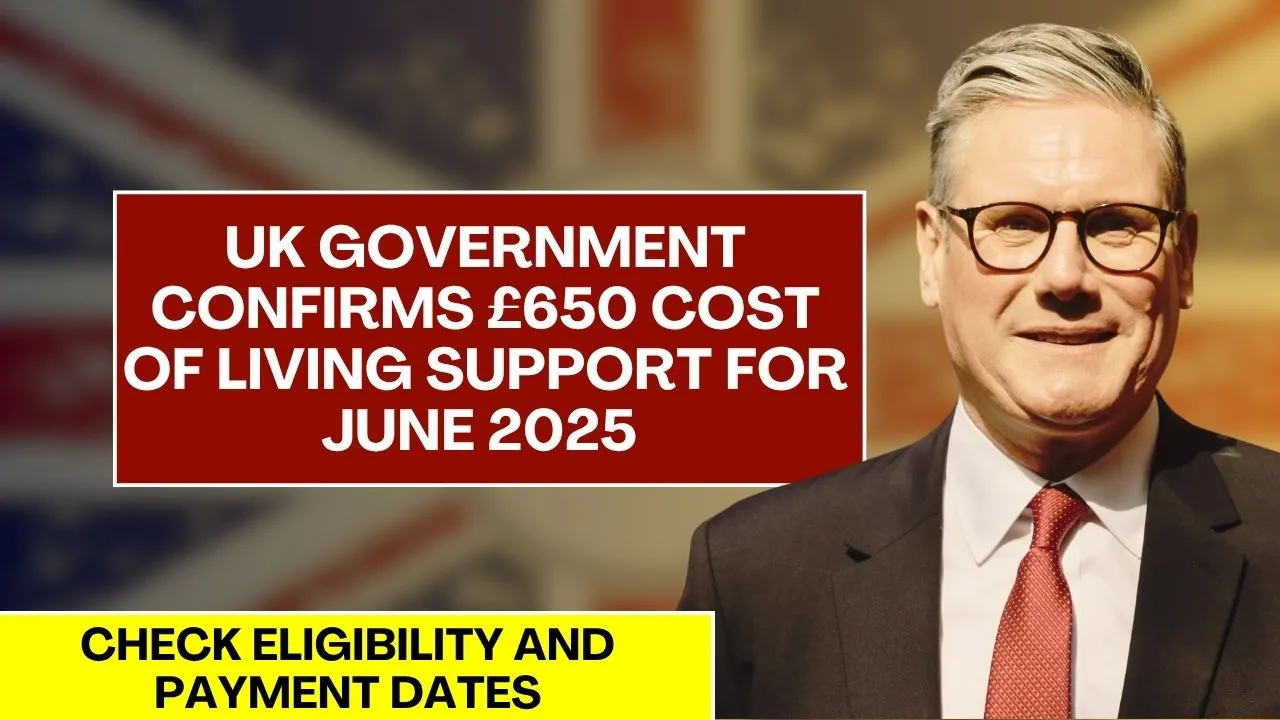£12000 backdated benefits: Thousands of UK individuals with mental health challenges have recently learned they could be owed substantial payments as the Department for Work and Pensions (DWP) initiates a review of personal independence payment (PIP) claims. This reassessment, rooted in new recognition of everyday social interaction needs, could result in backdated benefits up to £12,000 backdated benefits—a potential life-changing sum for many.
Since the original PIP rules didn’t fully acknowledge how anxiety, PTSD, autism, or depression can affect someone’s ability to interact in public spaces, many claimants received lower-than-deserved support—or no support at all. Now, the DWP is correcting these oversights, providing not only financial redress but also a meaningful validation of real-world struggles.
£12,000 Backdated Benefits
The £12,000 backdated benefits initiative directly targets those who submitted a PIP claim between April 2016 and July 2019. If your claim was denied or granted at a lower rate due to outdated criteria around social interaction, you might now be due a significant one-off payout. By acknowledging informal yet crucial support needs—such as someone helping during a panic attack—this reassessment ensures thousands are rightfully compensated. For many, these corrections will mean long-overdue financial recognition of mental health challenges.
Overview Table
| Aspect | Details |
| Claim Window | PIP claims from April 2016 to July 2019 |
| Focus Conditions | Mental health issues affecting social interaction |
| Support Defined As | Calming presence, reassurance, guidance during public interactions |
| Original Claim Status | Denied or awarded at a lower rate due to old assessment rules |
| Back Payment Range | £3,000–£7,000 for partial underpayments; up to £12,000+ for long-term cases |
| Reassessment Process | Review claim, collect evidence, contact DWP, improve with support help |
Who Qualifies for the PIP Back Payment?
To be eligible for £12,000 backdated benefits, you must fulfil several criteria:
- Submission Period: You made a PIP claim between April 6, 2016, and July 18, 2019.
- Mental Health Conditions: Conditions like social anxiety, PTSD, depression, or autism that affect public interaction.
- Support Need: You needed someone’s presence to calm you, guide you, or help you manage stress in social settings.
- Underpaid or Denied Claim: Your original assessment didn’t reflect your true support needs under the older guidelines.
This updated approach acknowledges everyday struggles and ensures those overlooked by outdated rules are not left behind.
Estimated Back Payment Amounts
Back payments vary depending on how much was underpaid and for how long:
- Partial Underpayment: £3,000–£7,000
- Long-Term Underpayment: £8,000–£12,000+
- Previously Denied Claims Now Approved: Up to £10,000
If you were on a low award or denied entirely, and your condition impacted you over years, your payout will reflect the full extent of the oversight.
What Changed in the PIP Assessment?
Earlier, PIP assessments focused only on structured support—like scheduled therapy sessions. Informal support, such as needing someone to stay with you during a social engagement, wasn’t counted. The revised rules now recognize these everyday supports as important criteria. This shift acknowledges the emotional and practical realities many with mental health conditions face and dramatically changes eligibility for many claimants.
How to Check and Claim Your Payment
1. Review Your Claim History
Go through any PIP documentation between April 2016 and July 2019. Look for denials or low social interaction scores.
2. Recall Specific Situations
Reflect on times when you needed a calming presence or emotional reassurance in public. Note precedents like panic attacks or overwhelming anxiety.
3. Gather Evidence
Assemble evidence such as GP or therapist letters, carer notes, and personal statements. Written accounts from friends or family about your support needs can be crucial.
4. Contact DWP
Reach out via the PIP phone line:
- Voice: 0800 121 4433
- Textphone: 0800 121 4493
Ask them to reassess your claim under updated social interaction criteria.
5. Get Support
Seek help from welfare rights specialists, Citizens Advice, or disability advocates. They can help you present a strong case and navigate the claim process effectively.
Real-Life Example
Emma, aged 32, was diagnosed with social anxiety and agoraphobia. She applied for PIP in 2017 but received no award. After a DWP review in 2025, she was deemed eligible and received a back payment of £9,200, plus ongoing benefit. Her story shows how vital these new rules are in addressing past injustices.
For Carers: How to Help Someone Claim
Carers are often essential to these claims:
- Document Support: Keep logs where your loved one needed reassurance during day-to-day activities.
- Assist with Communication: Help gather past claim records and speak to DWP with permission.
- Support Follow-Ups: Aid in submitting forms and staying in touch with advisors or DWP officials.
Your involvement can significantly improve someone’s chances of receiving the correct payment.
Tips to Maximize Your Back Payment
- Be specific: Clearly describe support situations (e.g., “required help remaining calm during a 30-minute public event”).
- Provide documentation: Every therapist letter, GP note, and personal account helps build a strong case.
- Keep records: Save copies of all communication with DWP and advisors.
- Seek advice: Use experience from welfare rights or support organizations to strengthen your claim.
Common Qualifying Conditions
| Condition | Social Interaction Impact |
| Autism Spectrum Disorder | May need constant guidance or prompting in public |
| PTSD | Panic triggered by crowded or unfamiliar spaces |
| Social Anxiety Disorder | Anxiety in conversations or social settings |
| Bipolar Disorder | Difficulty regulating emotions during group settings |
| Depression | Low motivation and trust issues, making public engagement hard |
These conditions often require informal support that older PIP rules didn’t acknowledge. Modern reassessment now closes that gap.
FAQs
Will I be contacted automatically by DWP?
Not automatically. Contact DWP yourself to initiate reassessment under the new social interaction rules.
What documents should I prepare?
Compile GP or therapist letters, carer notes, panic logs, and statements from supporting individuals.
How long does it take to get paid?
Processing times vary, but it can take weeks to several months once reassessment begins.
Can I appeal a reassessment decision?
Yes. You can formally appeal if you’re still dissatisfied after reassessment. Keep detailed records to support this step.
Does this affect ongoing PIP payments?
Yes. Eligible reassessment may also raise your current daily living rate, not just provide a backdated payment.
Final Thoughts & Call to Action
The £12,000 backdated benefits scheme represents not just a financial correction, but a long-overdue acknowledgment of real needs faced by individuals living with mental health conditions. If you filed a PIP claim between April 2016 and July 2019 and were under-supported, now is the time to act. Review your claim history, assemble detailed evidence, and reach out to a welfare rights advisor to guide your reassessment.
Don’t let outdated rules keep you from getting what you deserve. This isn’t just about money—it’s about dignity, recognition, and support for real-life struggles. Reach out, reclaim what’s yours, and ensure your entitlements are fully recognized. Take the first step today, and help spread the word so others can benefit too.
















